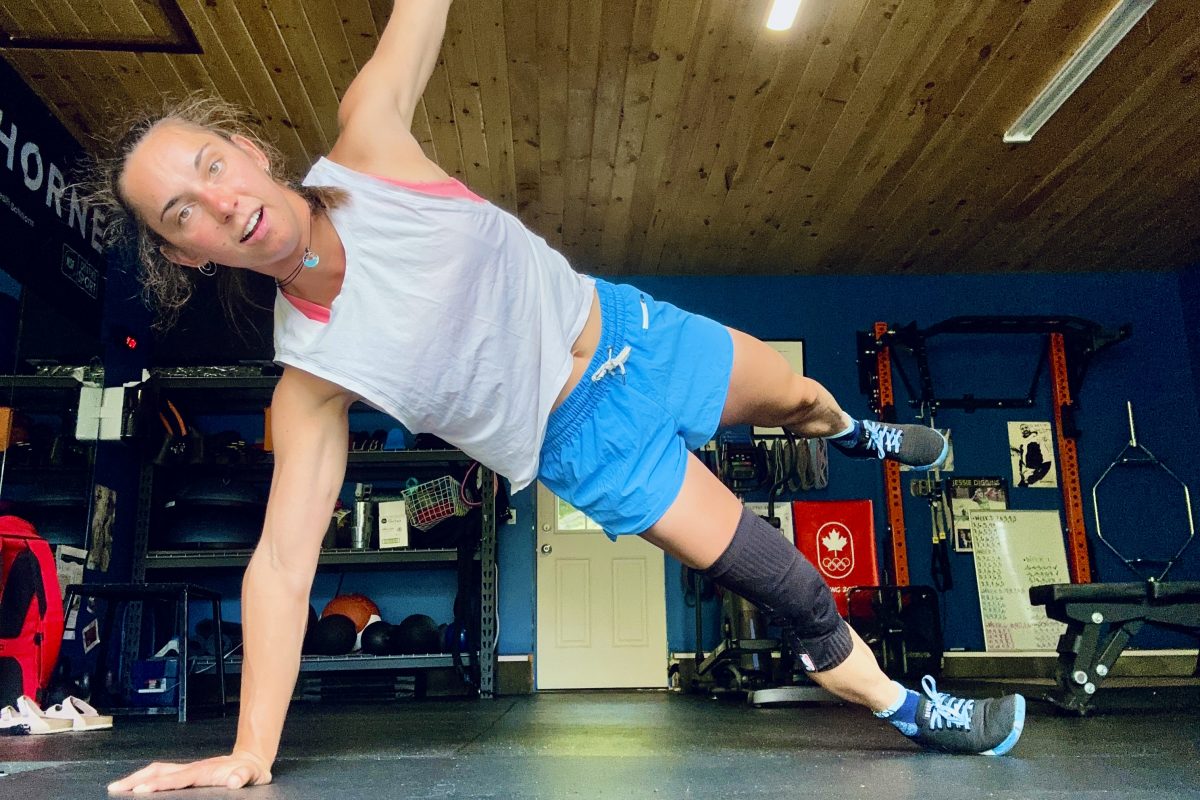
This week’s workout comes from Jennie Bender of the Bridger Ski Foundation (BSF) in Bozeman, Mont. Bender answered the following question from reader Scott Kyser: “[What does it feel] like to be rested at the end of an easy week? How different does it feel compared to a hard week? I’m talking at the pro level where people are training [more than] 20 hours a week.”
Since graduating from the University of Vermont in 2010, Bender, 26, has been in the elite realm of U.S. cross-country skiing for the last four years, racing for Central Cross Country (CXC) before joining BSF last year. And after experiencing some highs and lows in her career, like any racer, she has a bit of advice when it comes to recovery from day-to-day workouts.
***
If you are training, you get tired. When you aren’t training, you get tired. How do you know when to listen to that fatigue, and when to slap it in the face? If you take a rest week from training, how should you feel? What does a rest week mean?
Let’s dissect this a bit.
1. Which hypothetical athlete are you?
- Robin – Is just starting to “train”, and does a workout 3-5 days a week.
- Casey – Has a busy career, and works out hard whenever possible. Usually at least something for at least an hour every day.
- Morgan – Skiing is the main focus in life, and is on a structured training plan. Trains 6 days a week, many times multiple times a day.
2. What are you tired from? Be honest with yourself. There are probably more than two.
- I have been working out so much!
- AHH work is so stressful!
- Family doesn’t let me get anything done!
- I am mentally fried.
- I am just super sore from anything I do.
- I have been sick/not feeling well/recovering from something.
- I just….don’t want to….do….anything. NEED MOTIVATION HELP!
Hypothetical Robin gets sore a lot when she works out, and has a lot on her plate in terms of life, which affects her motivation to get out and do stuff. She wants to rest, in general, but then she’s worried she might just stop doing anything. Robin needs to realize that getting sore is all part of the process of getting fit, but she is probably doing too much during the times when she can get out. She needs to set a deadline for her “resting phase”, which if she is only working out 3-5 days a week, only needs to be 3 or so days of “refilling the well”. Too few days, and she is digging herself into the ground. Too many days, and motivation to get back out the door slowly disappears with excuses.

Hypothetical Casey is training for the Birkie, and wants to kick everyone’s butt. He’s coming for you. Between work and working out, he goes non stop. He works out to handle stress, and rarely rests. He thinks rest is for the weak. REST IS NOT FOR THE WEAK, *SLAP.
Casey will get faster if he lets his body recover from what he is putting it through. Knowing him though, his “rest week”, will mean that he stuffs everything into that time frame, meaning he isn’t ever really resting. First, his goal is to take AT LEAST ONE day, OFF-off. He will still have stuff to do, but will try to sit a lot, drink lots of water, and eat healthy. That same week, he needs to take some breathers. His rest week means he will do light working out, meaning: an hour light bike, a short 30-45 minute run, maybe splurge for a massage to bring the body back into equilibrium.
He should take the full week like this, because he is probably training more than I am. He will feel fear that he is getting out of shape, or that his motivation will fly away. However, he is too competitive to let that happen, so don’t worry.
“REST IS NOT FOR THE WEAK, *SLAP.” — Bender
Morgan (and Casey) – Your first two days off will feel like a huge slump. When you let yourself rest, you might suddenly feel excruciatingly tired. This is the time when you are most susceptible to getting sick. You are letting your guard down, so to speak, so take extra precaution. This is also the time when many women might get their period if it’s been late, because the body has more energy to work with. After a few days, your body will start to pick up. However by the end of the week, you will be one of two things. A) Sluggish and low in motivation, or B) ready to go run a million miles. Cases of type A tend to have needed that mental rest more than type B. To get back into the game after having your mental rest, try to mix it up and do a different type of exercise, or find a new buddy to workout with. Type B needs to make sure that they don’t dive in too fast, and injure themselves or use up all their energy so that they can’t have quality workouts the rest of the week.
With both A and B, as long as you are not sick or injured, get back out there after the week, or resting block, is over, and start in with your training plan. No excuses.
A rest week does not mean completely off. It all depends on you. It’s your rest week, you take it how you need it. Sometimes I take two days off if I have just had a huge intensity block, then work back into the easy week with some light running. Learning how to listen to your body, and when to tell it to shut up, is all part of becoming a better athlete. Take written or mental notes on how your body responds to rest, workouts, nutrition, how much sleep, massage, etc., and you’ll reap the benefits.
***
Do you have a question or idea for a Wednesday Workout?



